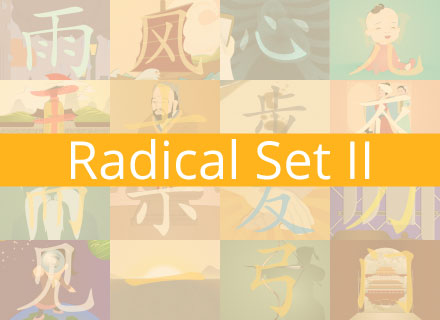Chinese Numbers 0 - 99
While China has adopted the Arabic numeral system familiar around the world for many uses such as mathematics and science, the native Chinese character number system is still used. As illustrated in the infograph to the left, the Chinese system is also a base-10 system, but has important differences in the way the numbers are represented.
Regular Chinese characters for numbers use relatively few strokes. The characters for one, two, and three are just one, two and three parallel horizontal strokes, respectively. To prevent fraud when writing checks and in other cases where fraud is possible, the Chinese also use a series of more complex characters to represent numbers: 壹 = 1, 贰 = 2, 叁 = 3, etc. It is easy to change a "一" into a "二" in regular Chinese number characters, but with the formal complex characters, this is nearly impossible.
Numbers have always played a significant role in Chinese culture. A system of lucky numbers evolved naturally because people in China traditionally associate fortune with lucky numbers. Numbers can carry auspicious and ominous significance, so the Chinese take auspicious numbers into important consideration in daily life, such as in occasions when purchasing residences, choosing telephone numbers, selecting wedding date, and picking an identification number for their vehicle. In China, it is customary to regard even numbers as being more auspicious than odd numbers. So, gifts are given in even numbers for the celebration of all occasions. 八, the number 8, has long been regarded as the luckiest number in Chinese culture because its pronunciation "bā" is similar to the word 发 (fā) which means "to prosper, to make a fortune". It contains meanings of prosperity, success and high social status, which makes 八 a favorite number among men and women in business. Moreover, in some areas of China, people are willing to pay more for a telephone number containing 8 and also favor residences on the 8th floor of buildings.
- Number Set:Chinese Numbers 0-10
- Purchase this Poster





